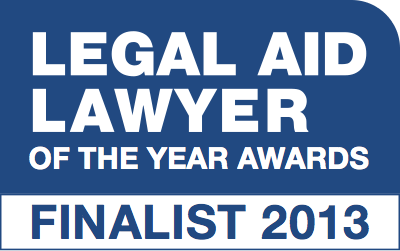Can I challenge the ground rent and service charges on my flat?
Services charges, and increasingly ground rent as well, are a common cause of disputes between leaseholders and their landlords. Depending on the circumstances, you may be able to challenge these costs or even take over the management of your building, giving you control over service costs.
How to challenge service charges on a leasehold flat
Services charges are meant to cover the costs the freeholder or their agent incur for providing services to the property. Exactly how much these service charges are and what they cover should be included in the tenant’s lease and a tenant is not legally required to pay any charges not explicitly set out in their lease.
The lease may specify fixed service charges, where the leaseholder will pay the same amount regardless of the landlord’s costs, or variable service charges, where the landlord can charge whatever is required to cover the agreed services. Either way, the landlord is only able to recover costs that are reasonable for the services they provide.
If you believe the service charges you are being asked to pay are excessive, e.g. you believe they are more than the services provided should actually cost, you may be able to challenge this. You can do this by appealing to the First-tier Tribunal (Property Chamber).
In your application to the Tribunal, you will need to explain the charge you have been asked to pay, what it is for and why you feel it is unreasonable. Both you and the freeholder will get to present evidence and the Tribunal will make a decision over whether the charge is reasonable. If the Tribunal decides the charge is not reasonable, they will specify what amount you are required to pay (if any) instead.
The First-tier Tribunal can also give a ruling in cases where you believe a charge you have been asked to pay is not included in the terms of your lease.
Know your ‘right to manage’
If you are unhappy with the way your building is being managed, you may be able take over the management of the building by exercising your ‘right to manage’.
This allows leaseholders to take over the management of their building as long as at least 50% of qualifying tenants participate and certain other conditions are met. Once you have taken over management of the building, you can then set your own service charges, ensuring all necessary work is carried out for a fair price.
How to challenge ground rent
For older leases, ground rent was often a nominal sum that many landlords did not even collect. However, for newer leases, ground rent is often a much higher amount with many leases containing clauses that specify that the ground rent can double every ten years. As a result, ground rent can now make up a very significant part of the ongoing costs of owning a leasehold.
While the government is currently looking at ways to deal with the issue of escalating ground rents, landlords do have a legal right to demand payment of the ground rent specified in the terms of the lease.
If you are unhappy with the level of ground rent being charged on your flat, you should consider buying the freehold on your property, which will usually require you to work with other leaseholders in the building if you are part of a block of flats.
Get expert legal advice for leasehold disputes
At Atkins Hope, our experienced, reliable residential property solicitors offer clear, pragmatic advice for dealing with all types of leasehold disputes, as well as various other types of contentious and non-contentious property issues.
We are members of the Law Society’s Conveyancing Quality Scheme, reflecting the high quality of our property services.
For expert help with resolving a leasehold dispute, please get in touch with our specialist residential property solicitors in Croydon and Blackheath now.








